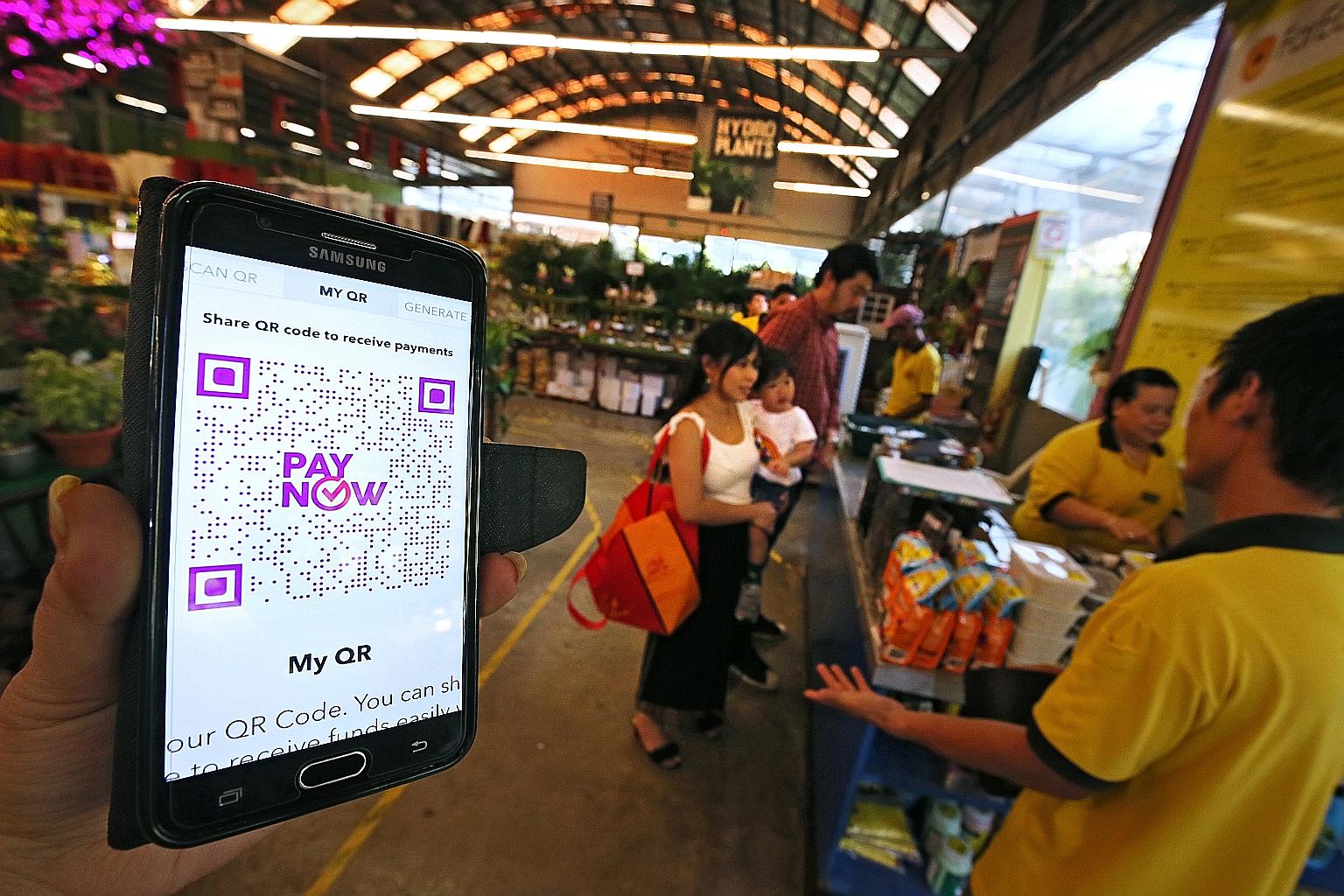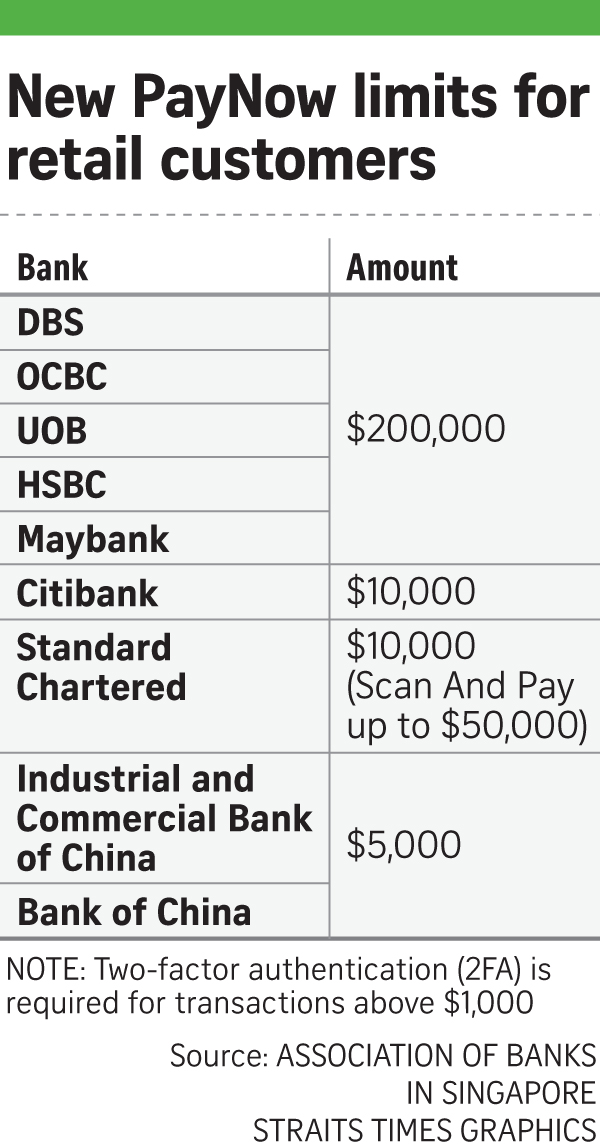PayNow banks raise limit for ad hoc transactions to at least $5k
Move will allow customers to use funds transfer service for wider scope of payments
Sign up now: Get ST's newsletters delivered to your inbox

The increased limit will make it easier for cash-strapped small and medium-sized enterprises to use PayNow to receive payments for goods. The Association of Banks in Singapore says it will continue to work with the industry to promote PayNow as a convenient and secure way to transfer funds.
LIANHE ZAOBAO FILE PHOTO
Follow topic:
PayNow users will now be able to send a larger amount of money to others on the funds transfer service.
All nine participating PayNow banks will allow ad hoc transactions of at least $5,000, said the Association of Banks in Singapore (ABS) yesterday. PayNow users were previously able to make daily transactions of up to $1,000 in total without adding the recipient as a payee.
ABS said the move to raise the limit will allow customers to use PayNow for a wider scope of payments to merchants and friends.
The higher limit applies to PayNow on both Internet banking and mobile application channels.
It includes scan-and-pay transactions and transfers initiated by entering the NRIC number, mobile number or Unique Entity Number of the recipient, without first going through the process of adding the recipient as a payee.
The nine participating banks are Bank of China (BOC), Citibank, DBS Bank, HSBC, Industrial and Commercial Bank of China (ICBC), Maybank, OCBC Bank, Standard Chartered Bank and United Overseas Bank.
The transaction limit for retail customers has been raised to $5,000 for BOC and ICBC; $10,000 for Citibank and StanChart (with scan-and-pay transactions of up to $50,000 for StanChart); and $200,000 for UOB, DBS, HSBC, Maybank and OCBC.
Customers will be required to key in their two-factor authentication number for transactions above $1,000. They may also set their PayNow limit to a level that they are comfortable with, said ABS.
The association said it will continue to work with the industry to promote PayNow as a convenient and secure way to transfer funds.
As of August, more than 4.46 million registered PayNow users had collectively transferred nearly $34 billion since the launch of the service in June 2017.
Ms Andrea Lim, 23, who works in business development, said the increased limit will make it easier for her to make large payments such as for electronic items. "Not having to use tokens makes the payment process a lot more convenient."

>4.46m
Number of registered PayNow users, as of August, who had collectively transferred nearly $34 billion since the launch of the service in June 2017.
Professor Duan Jin-Chuan from the National University of Singapore Business School said the higher limit affects spontaneous transactions in higher amounts.
While PayNow is convenient, it requires users to be linked to a bank account, he added. "If PayNow adds a wallet function that can hold a cash balance without linking to any bank account, it will have potential to become a unified funds transfer system."
Assistant Professor Aurobindo Ghosh from the Lee Kong Chian School of Business at Singapore Management University said the increased limit will make it easier for cash-strapped small and medium-sized enterprises to use PayNow to receive payments for goods.
"This might reduce the working capital cycle or conversion of inventory to cash, critical for net working capital management and ultimately, in some cases, survival of some of these enterprises," he said.
Associate Professor Angie Low from Nanyang Technological University's Nanyang Business School said the higher PayNow limit might change the service's landscape. "This will likely attract more users with differing purposes and where transaction values exceed $1,000."
ABS' latest announcement comes amid recent developments on the use of the funds transfer service. Last Wednesday, the Infocomm Media Development Authority said PayNow Corporate, an instant funds transfer service for businesses, will be integrated into Singapore's nationwide e-invoicing network.
The authority worked with DBS, OCBC and UOB to develop the solution, which aims to allow businesses to bill and make payments to one another seamlessly online.
The next day, it was announced that DBS PayLah and StanChart customers can now use Google Pay to transfer funds directly from their bank accounts to anyone registered with PayNow.

